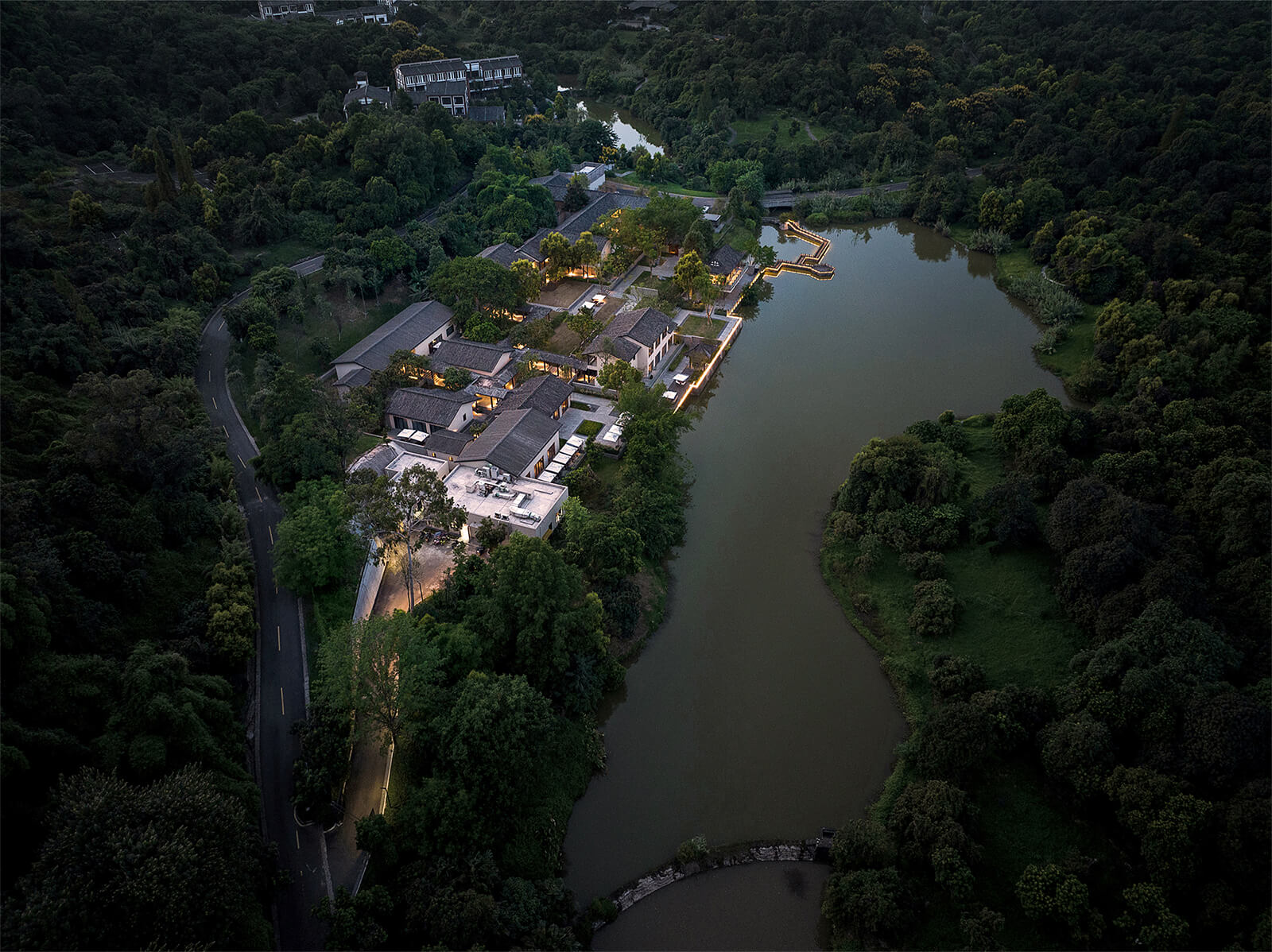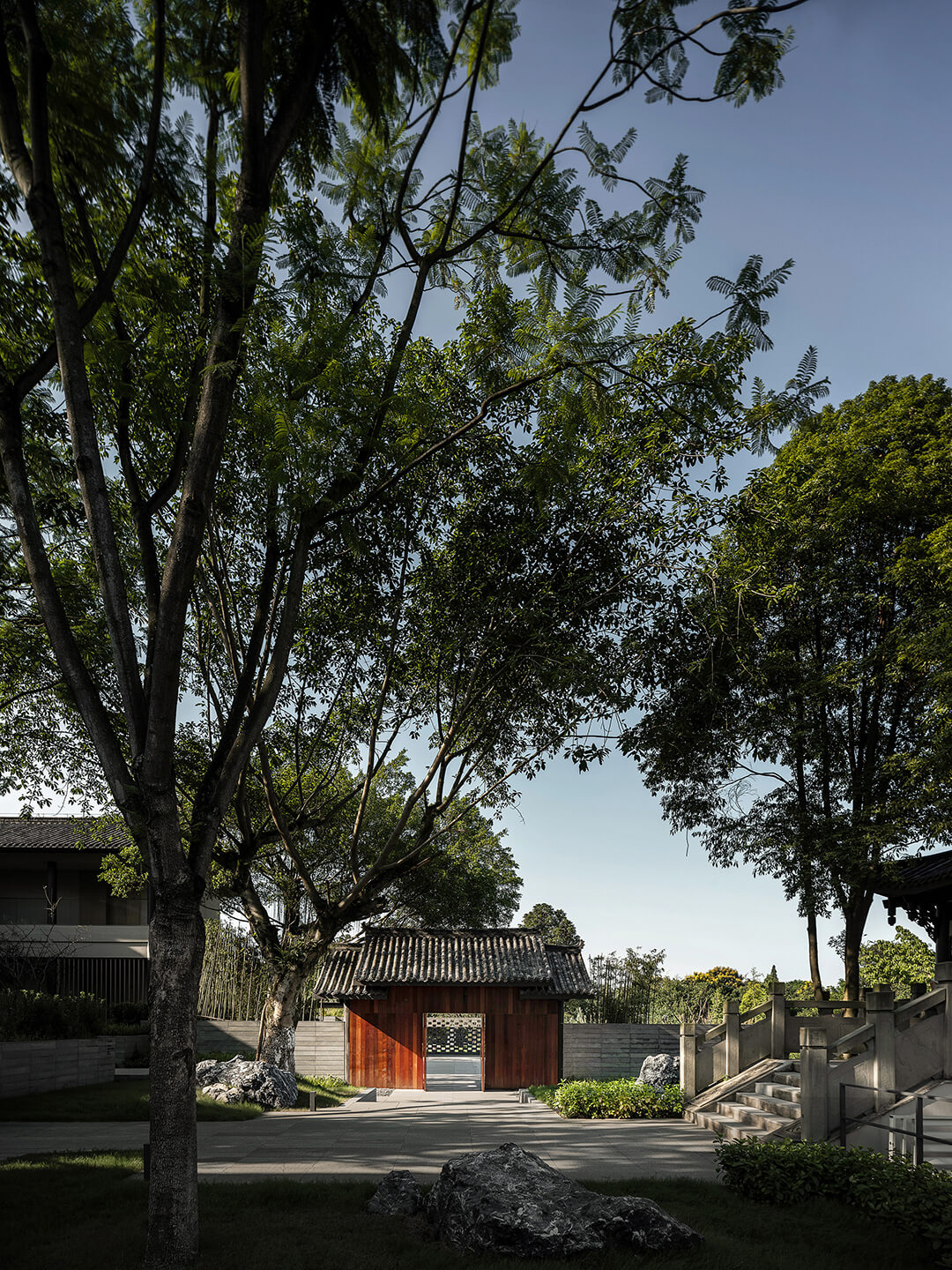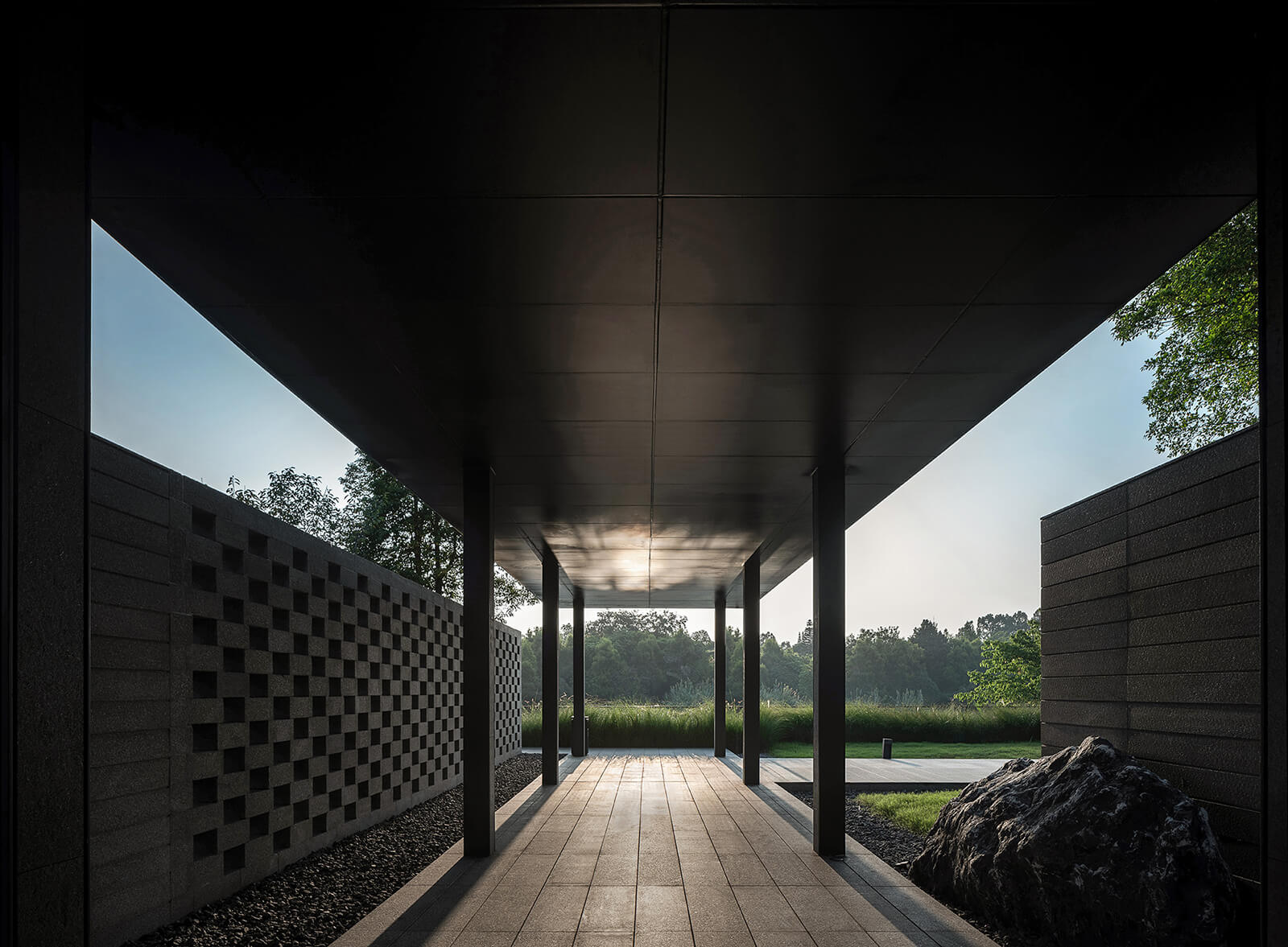Outlooker Design converts an ancient Hui-style home into a restaurant and café
by Jerry ElengicalDec 03, 2022
•make your fridays matter with a well-read weekend
by Akash SinghPublished on : Jan 20, 2024
What roles does architecture play in celebrating cultures? Nestled amid a century-old Longan forest, the Guili Hotel designed by Cheng Chung Design (CCD) celebrates the liquor heritage of China’s Luzhou city in a serene natural setting, reinforcing the role of architecture as a cultural medium. Luzhou is located southeast of Sichuan Province and is particularly renowned for baijiu—a popular traditional distilled liquor and one of the most consumed alcohol by volume in the country.

The hotel architecture is a culmination of numerous small buildings overlooking a courtyard and linked through covered walkways. The influence of traditional Chinese architectural elements is apparent, in the use of narrow alleyways, courtyard gardens, and pitched roofs, and an emphasis on the breadth of the buildings—rather than height—becomes definitive to visitors' experience. The architecture conveys an obvious theme of a contemporary luxurious experience with visible hints of historical and cultural relevance weaved in.
Known as the Liquor City, Luzhou is home to one of the most globally popular baijiu-producing companies, Luzhou Laojiao, which translates to ‘Luzhou Old Cellar’. Dating back to 1573, the distillery is the world's oldest continuously producing baijiu distillery. The Guili Hotel, located close to the cellar of ‘Guojiao 1573’, brims with a strong aroma of the baijiu. The olfactory stimulus of the renowned spirit becomes foundational for the hotel's experiential quality that celebrates the city's liquor culture.

While clean lines and natural textures define the visual composition of the space, the architecture expresses its origin through retained existing elements such as the weathered roofs. Elaborating on the architectural transformation, the design practice says, “The entire venue, including the landscape, curtain walls, interior, and lighting, underwent renovations to give it a new lease of life. While preserving the city’s profound root and soul, the design created a historical masterpiece that exudes rich elegance and artistic conception.” The hotel is designed with layers of openness, from the deep indoors to the open outdoors, erasing the stark distinction between spaces and using the surrounding nature in the architectural experience. The boundaries between the built and the unbuilt spaces are especially blurred in the communal spaces, where large fenestrations open into the surrounding landscape.

The landscape highlights the use of rock and garden, elements integral to traditional Chinese gardens. These represent the duality of Yin and Yang, a popular concept that stems from the Chinese school of thought. Describing how the built and unbuilt were tied, CCD shares, “The natural landscape surrounding the site was maximised to create an open and sunlit environment. Trees, rocks, and water were used to construct a courtyard that is in harmony with nature, presenting a physical and spiritual paradise with a sense of seclusion at the end of the winding corridor.” This concept becomes apparent to the visitor right at the entrance, where the local rocks sit in contrast with the surrounding century-old trees. CCD describes their intervention as the facilitation of “a conversation between the old and the new, and a merging of the past with the present.”
The influence of the liquor culture becomes apparent not only in the programmatic aspects of the project—through the many facilities that allow visitors to enjoy drinking—but also through elements in its design. The hotel’s facade, made from the mud of the old cellars, pays homage to local cultural resources. This detail not only reshapes the building’s textural quality but also reinforces the structure. The interiors use natural materials and textures to evoke a feeling of comfort. Connecting to Luzhou’s liquor culture, elements such as old liquor jars and utensils, were preserved and transformed into lamps and works of art.
“The design of the restaurant features the liquor-distilling history of Luzhou, paying homage to the ingenuity of local craftsmanship. The artwork showcasing the craftsmanship of liquor distilling beautifully weaves together the essence of traditional Chinese culture and liquor, emphasising carefulness, strict production practices, respect for mentors, and the inheritance of knowledge,” concludes the Hong Kong-based practice.
The use of natural materials in design promises graceful ageing, with the weathering adding character to the ambience of the hotel. Injecting cultural elements in every space, the design practice enhances the sleekness of modern decor by integrating symbols of local customs. Replete with modern delicate forms of design elements, the hotel offers the familiarity of globally recognised design styles, while at the same time becoming a resounding reflection of its context and culture.
Name: Guili Hotel
Location: Zhangba Longan Woods Park, Luzhou, Sichuan, China
Architect: Cheng Chung Design
Area:
Building area: 3,200 sqm
Landscape area: 8,000 sqm
Year of completion: 2023
by Chahna Tank Oct 15, 2025
Dutch ecological artist-designer and founder of Woven Studio speaks to STIR about the perceived impact of his work in an age of environmental crises and climate change.
by Bansari Paghdar Oct 14, 2025
In his solo show, the American artist and designer showcases handcrafted furniture, lighting and products made from salvaged leather, beeswax and sheepskin.
by Aarthi Mohan Oct 13, 2025
The edition—spotlighting the theme Past. Present. Possible.—hopes to turn the city into a living canvas for collaboration, discovery and reflection.
by Anushka Sharma Oct 11, 2025
The Italian design studio shares insights into their hybrid gallery-workshop, their fascination with fibreglass and the ritualistic forms of their objects.
 surprise me!
surprise me!
make your fridays matter
SUBSCRIBEEnter your details to sign in
Don’t have an account?
Sign upOr you can sign in with
a single account for all
STIR platforms
All your bookmarks will be available across all your devices.
Stay STIRred
Already have an account?
Sign inOr you can sign up with
Tap on things that interests you.
Select the Conversation Category you would like to watch
Please enter your details and click submit.
Enter the 6-digit code sent at
Verification link sent to check your inbox or spam folder to complete sign up process



by Akash Singh | Published on : Jan 20, 2024
What do you think?